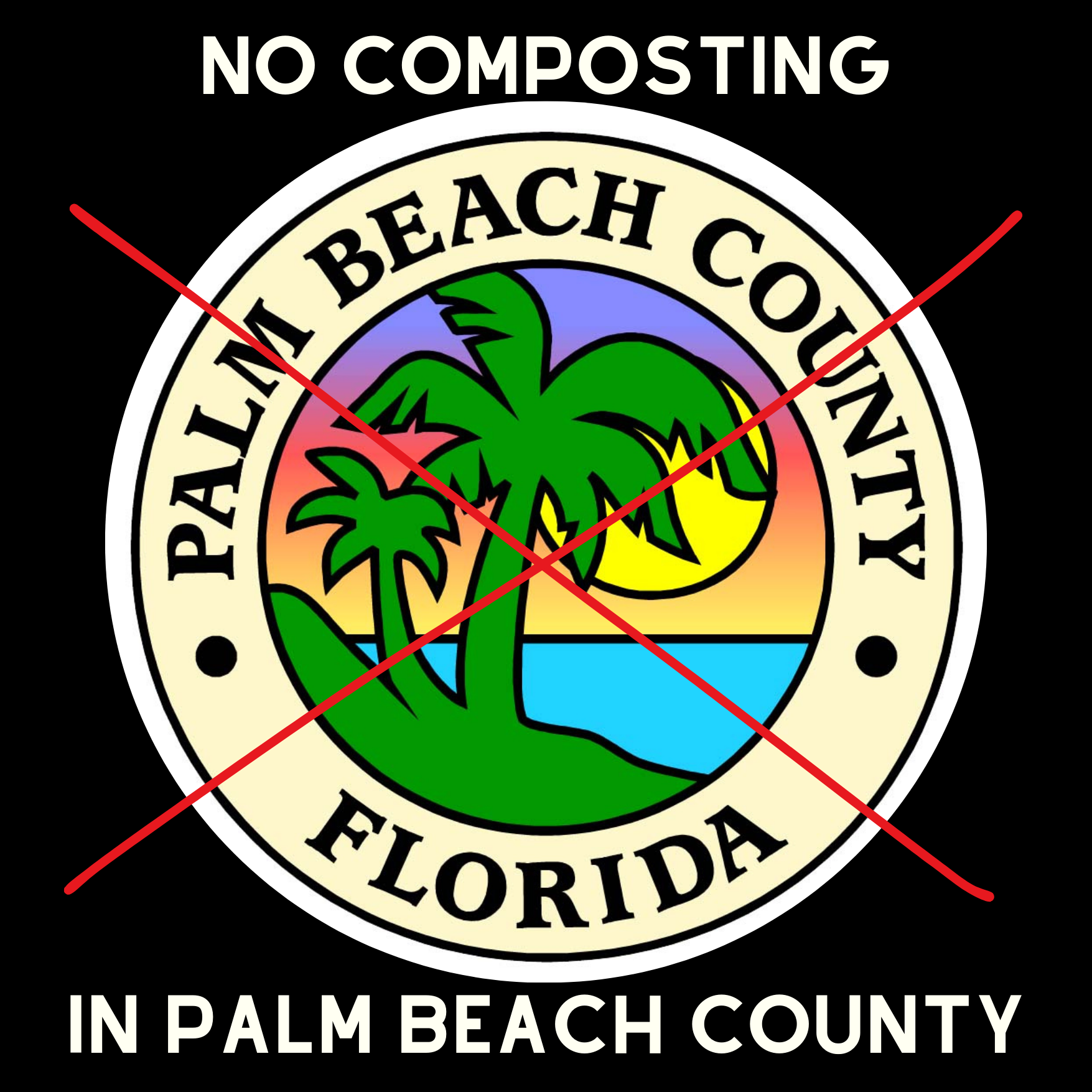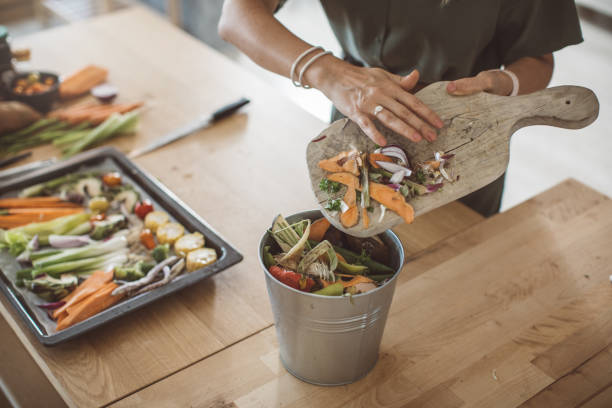Palm Beach County's Composting Conundrum
June 26th, 2024

Palm Beach County, known for its beautiful landscapes, beaches and commitment to environmental sustainability, faces a significant challenge that hinders the advancement of a key eco-friendly practice: composting. Despite the growing awareness and enthusiasm for composting among residents, and city officials, a complex web of regulations, flow control policies, and financial commitments to an existing waste facility are preventing composters from operating within the county.
Flow Control and Its Implications
At the heart of the issue is the county's flow control policy. Flow control refers to the authority of local governments to direct where waste generated within their jurisdiction must be disposed of. In Palm Beach County, this policy mandates that all waste must be sent to the county-owned incineration facility. While this ensures a steady stream of waste for the facility, it creates a significant barrier for composting operations.
By directing all organic waste to the incineration facility, the county effectively stifles the ability of composters to collect and process this valuable material. Composting not only reduces the amount of waste sent to landfills and incinerators but also produces nutrient-rich compost that can improve soil health and support local agriculture. The current flow control policy, however, diverts organic waste away from composters, undermining these environmental benefits.
Financial Ties to the Incineration Facility
Another layer of complexity is added by the county's financial commitments to the incineration facility. Bonds were issued to finance the construction and operation of the facility, and these bonds are repaid through the revenue generated by the facility's waste processing operations. This financial arrangement creates a strong incentive for the county to maintain a high volume of waste flowing to the incineration facility.
Energy Production and Its Drawbacks
The incineration facility in Palm Beach County is not just a waste disposal site; it also generates energy from the waste it burns. This waste-to-energy process can be seen as a way to turn trash into a resource. However, this process has significant drawbacks, particularly when it comes to burning food waste and other organic materials.
Food waste and organics are the most energy-intensive materials to burn because they are wet. The high moisture content in these materials means that more energy is required to evaporate the water before the waste can be incinerated effectively. This makes the process less efficient and more costly compared to burning dry, combustible materials. As a result, diverting organic waste to composting rather than incineration could improve the efficiency of the waste-to-energy process while providing numerous environmental benefits.
Challenges Faced by Renuable and Other Organics Recyclers
Renuable, a dedicated composting initiative, receives requests to compost for residents and businesses in Palm Beach County almost every week. Unfortunately, we are unable to operate within the county due to historical and ongoing regulatory obstacles. Palm Beach County has a history of sending cease and desist letters to now-defunct composting companies that tried to set up shop within the county. This regulatory environment further complicates efforts to establish composting operations and limits the options for environmentally responsible waste management solutions.
The Case for Composting
Despite these obstacles, the case for composting in Palm Beach County remains strong. Composting offers numerous environmental, economic, and social benefits:
-
Environmental Benefits: Composting reduces greenhouse gas emissions from landfills, decreases the need for chemical fertilizers, and enhances soil health.
-
Economic Benefits: By creating a market for compost, local businesses can develop new economic opportunities and jobs.
-
Social Benefits: Community composting programs can engage residents, raise environmental awareness, and promote sustainable living practices.
Moving Forward: Potential Solutions
To overcome the current barriers to composting, Palm Beach County can explore several potential solutions:
- Policy Adjustments: Revising the flow control policy to allow a portion of organic waste to be diverted to composting operations could balance the needs of the incineration facility with the benefits of composting.
- Financial Strategies: Developing alternative financing strategies to repay the bonds without solely relying on waste incineration revenue could reduce the county's financial dependency on the incineration facility.
- Amending State Code: Amending Florida State Code Chapter 403 Section 703 to specify organics as a recoverable material could provide a legal foundation to require counties to allow for diverting organic waste to composting. This change would recognize the environmental and economic value of composting and help align state policies with sustainable waste management practices.
- Community Engagement: Building strong support for composting through community education and engagement can create a grassroots demand for policy changes.
Conclusion
The current situation in Palm Beach County presents a significant challenge for composting organizations and advocates. However, with thoughtful policy adjustments, innovative financial strategies, or amendments to state codes, along with robust community engagement, it is possible to unlock the potential of composting in the county. By doing so, Palm Beach County can move closer to its sustainability goals and set an example for other communities facing similar challenges.
For residents and stakeholders interested in supporting composting efforts, staying informed and involved in local policy discussions is crucial. Together, we can work towards a future where composting thrives alongside other sustainable waste management practices in Palm Beach County. Please email us at hello@liverenuable.com if you would like to learn how to get more involved.

.jpg)
